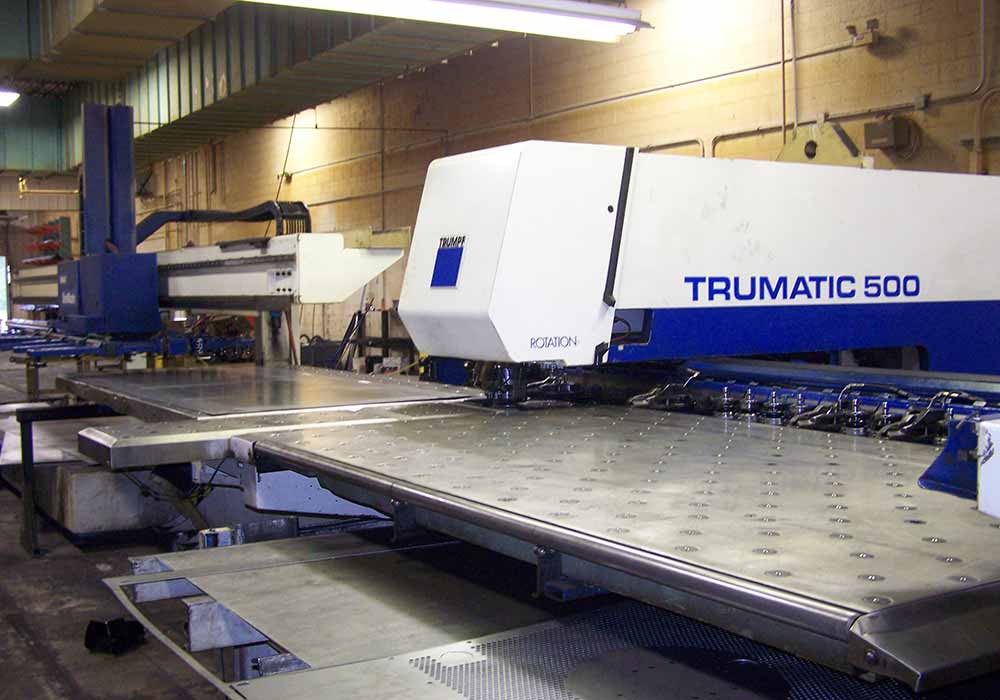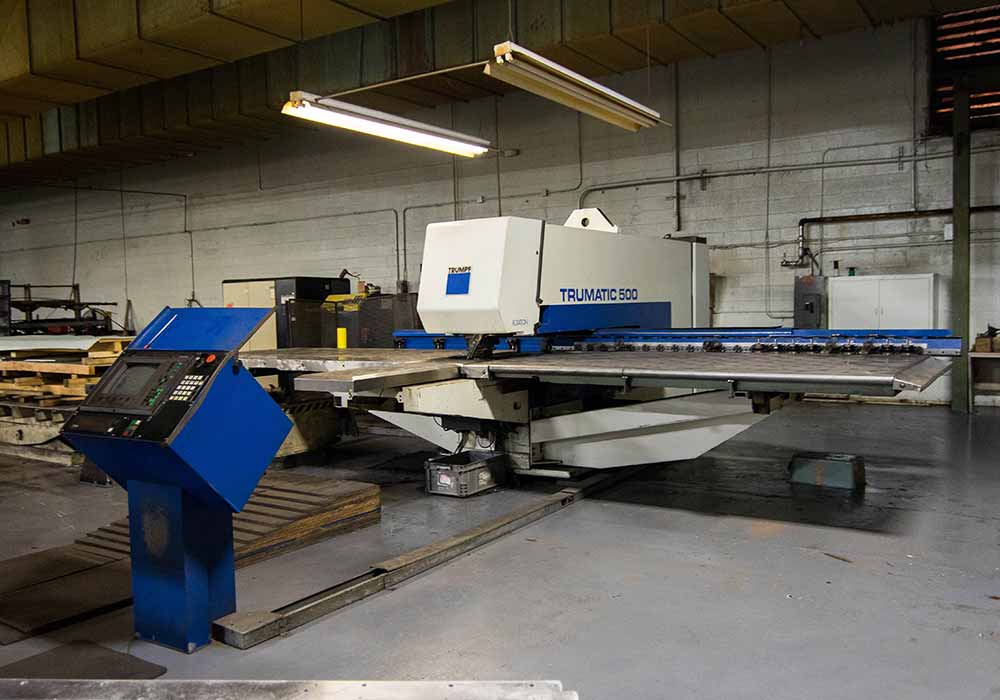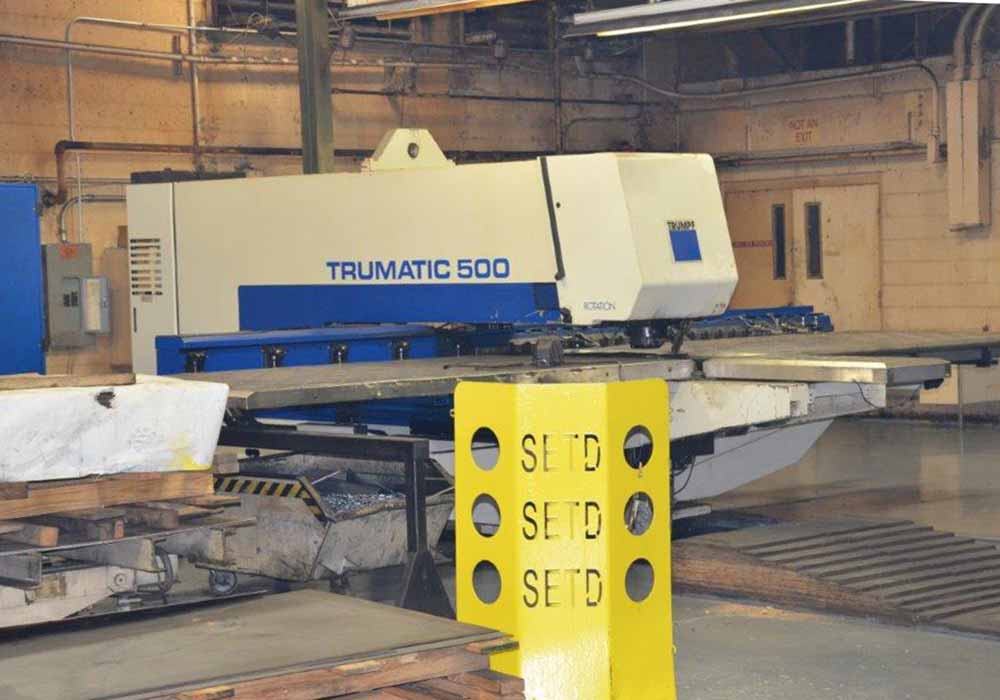A punching machine works much like a hole punch for paper. With a paper punch, the punch presses the paper against the support of the hole punch and finally into a round opening and the scrap from the punching is collected in the hole punch container.
Machine punching works in the same way. The sheet is positioned between the punch and the die. The punch moves downward and plunges into the die. The edges of the punch and the die move past each other in parallel, cutting the sheet. Observed in detail, the punching process proceeds in four phases.
- When the punch touches the sheet, the steel is deformed.
- Then it is cut.
- Finally, the tension within the material is so great that the sheet breaks along the contour of the cut.
- The cut out piece of steel – the punching slug – is ejected downward.
When the punch moves upward it can pull the sheet with it. In that case, the stripper releases the sheet from the punch. The higher the fraction of cut on the sheet edge, the better the edge quality. For precise fits, for example, preliminary holes are punched and then the final diameter is punched out with a slightly larger tool. The fraction of cut along such an edge is then as high as 100%.



